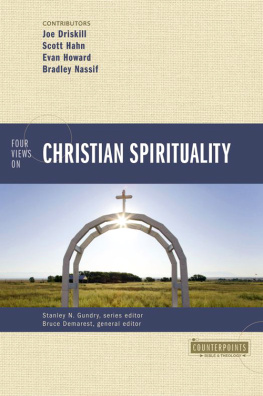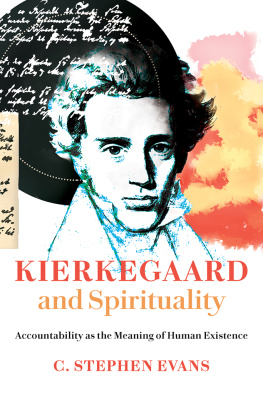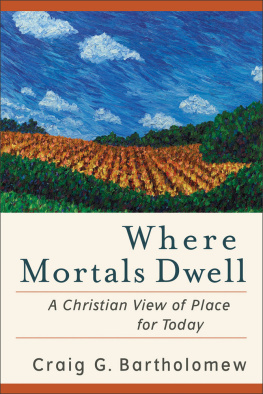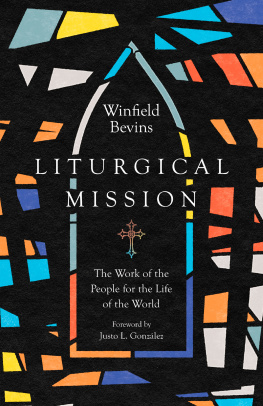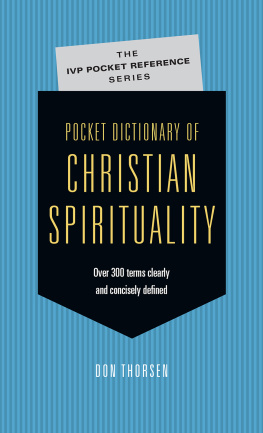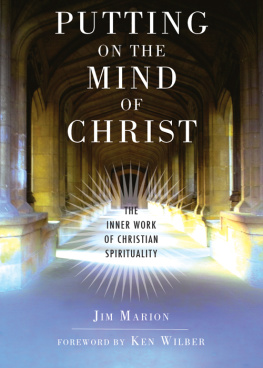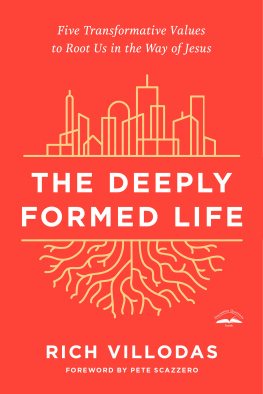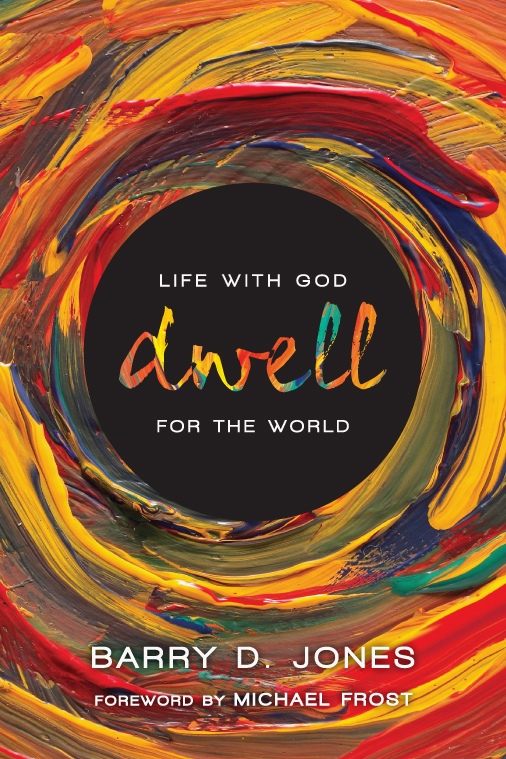Foreword
I met Barry Jones at Dallas Theological Seminary in 2010. I had been invited to present some guest lectures to their students on the subject of Christian mission. Although my lectures had been arranged by the missiology department, I was aware that professors from other faculties had been encouraged to attend. So when Dr Jones introduced himself to me as a professor of pastoral ministries and spiritual formation I wasnt surprised, but the way he tells it I visibly recoiled. I guess that was because Id become used to professors of spiritual formation being the last people to really get what I was talking about.
It might be a caricature, but from my experience the professors who teach pastoral ministries tend to be focused on preparing their students with the skills of self-care and the establishment of what they like to call boundaries. They often seem oriented toward the inner work of self-reflection, contemplation and holiness. We missional types are more oriented to the outer work of service, justice seeking, peacemaking and evangelism. Were more in the damn the torpedoes categoryready to fix bayonets at dawn and storm any barricade. In other words, pastoral ministries professors make me nervous. And vice versa.
When Barry approached me that day after my lecture in Dallas, I might have been expecting some pushback from him about how us missional folks need to step away from unreflective and boorish activism and learn to smell the roses. But instead what I got from Barry was an invitation to dinner at a local Vietnamese restaurant. And a pretty good one at that.
Barry and I shared more than a meal that day; we shared our hearts. It had been my hope for some time that someone would write a theology of missional spirituality. Not a version of spirituality that values withdrawal over engagement and pietism over practice, but a model of spiritual formation that sees actional engagement in place and among people as the very stuff from which godly formation can take place. We need a radical spirituality of missional engagement, I pleaded with him.
This, it turned out, was Barrys same desire. He had been tooling around with the guided spiritual formation program at DTS, looking for ways to integrate missional presence with the poor and the lost into the processes of preparation for ministry. He saw justice seeking, peacemaking and neighborliness as the contextual framework for the reflection and inner work required of every follower of Christ.
That day, over a delicious bowl of pho, a friendship was struck and I urged Barry to write something in this field. He took me seriously.
Youll note that the subtitle to this book is Life with God for the World, and youll find that phrase repeated throughout. Thats not simply a snappy title to grab a readers attention. It is the very framework of Barrys thesis. We were made for life with God (spiritual formation) for the world (mission). Indeed, it is this very life that Jesus came to secure for us, and its for more of this life that we actively wait in hope. To hear Barry tell it, living with God for the world is the key to all human flourishing. It involves self-care and introspection, repentance and holiness, and place making, justice seeking, service and evangelism. In this nexus lies the hope of real, abundant, rich, beautiful human existence. Its the place that Jesus modeled for us and about which he spoke when he urged us to love God with all our hearts and souls and minds, and to love our neighbors as ourselves. In short it means to dwellto be at homewith God and for the world.
A few years after that Vietnamese meal in Dallas I was honored to be on a panel assembled by IVP to judge book proposals. I was doubly honored to be part of awarding a contract to Barry Jones for the book you now hold in your hands.
I believe Dwell makes a profound and timely contribution to both missional and pastoral studies, and is written by someone who has invested many years into understanding how to dwell both with God and for the world.
Michael Frost
Morling College, Sydney, Australia
Introduction
The Incarnation and Christian Spirituality
The Word became flesh and made his dwelling among us. We have seen his glory, the glory of the one and only Son, who came from the Father, full of grace and truth.
J OHN 1:14
Christianity is the story of how the rightful King has landed, you might say in disguise, and is calling us all to take part in His great campaign of sabotage.
C. S. L EWIS
The most important moment in the birth of a child is the moment when the little one lets out her first cry. It is the vital sign of life. In fact, it used to be the common practice for doctors to help this moment along by holding the newborn by her feet and slapping her backside. While the practice offends some contemporary sensibilities, it served a crucial function. At birth, a babys lungs are filled with fluid. The first cry helps expel the fluid and allows the baby to take her first breath. The lungs expand. Oxygen rushes in. Respiration begins. Her life in the world commences with the rhythm of breathing in and breathing out.
We rarely pay much attention to the rhythm of our breathing unless something interrupts it. But this rhythm pulses through every moment of our lives from the first cry of life until our dying breath. The average adult takes between twelve and eighteen breaths every minute, which means the rhythm of inhaling and exhaling occurs more than twenty thousand times every day. The rhythm of our breath is the rhythm of life.
There is a rhythm of life that pulses through the biblical vision of what it means to be human. A kind of breathing in and breathing out. An inhale and an exhale. The breathing in is our participation in the divine life. The breathing out, our participation in the divine mission. The breathing in is intimately connected to our experience of Gods personal presence. It is life lived with God. The breathing out involves our participation in Gods just reign. It is life lived for the sake of the world. The breathing in we often call spirituality. And the breathing out we call mission. The burden of this book is to show how these twospirituality and missionare intimately bound up with one another, like inhaling and exhaling. Further, I will be arguing that the embodiment of this breathing in and breathing out is of the essence of what it means to live a fully human life.


